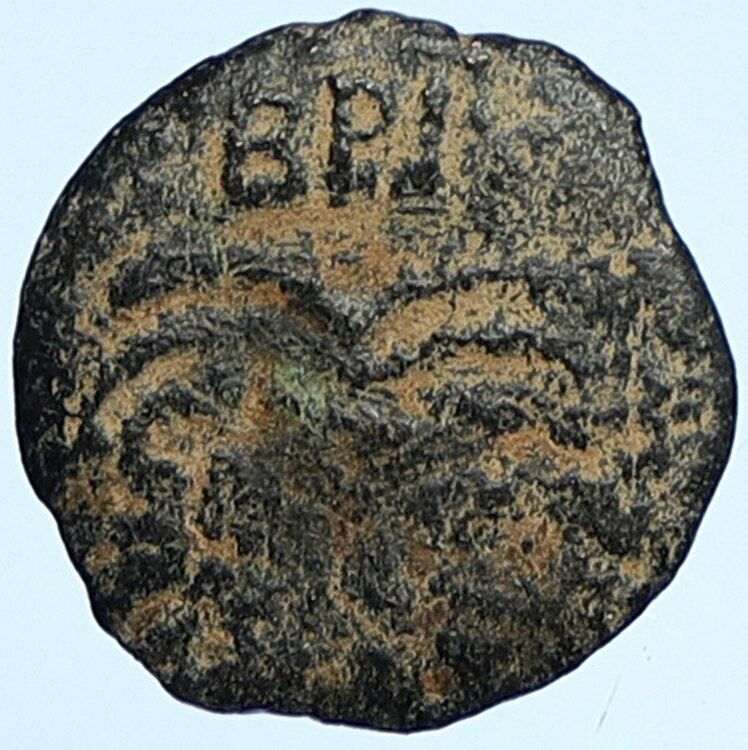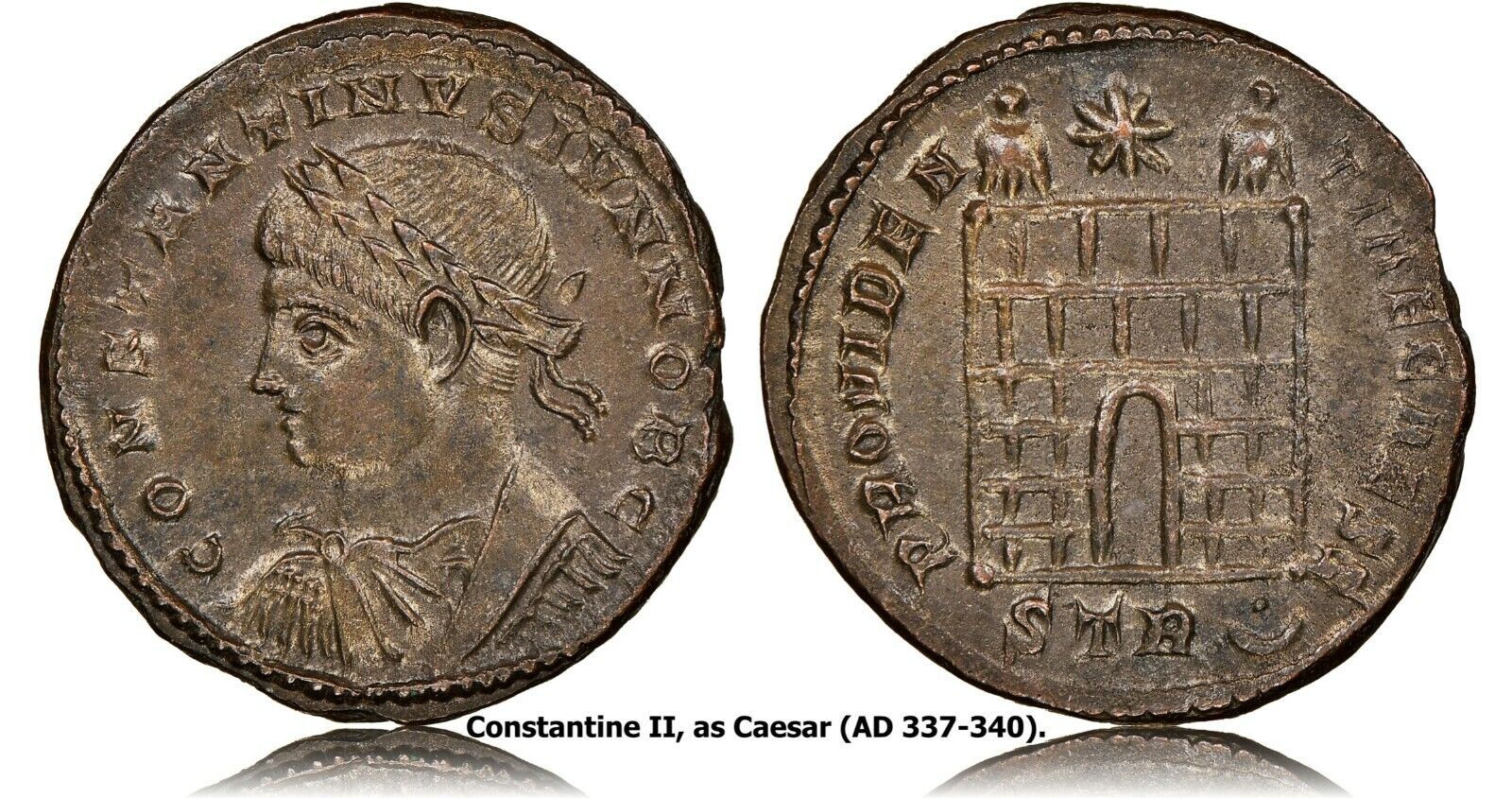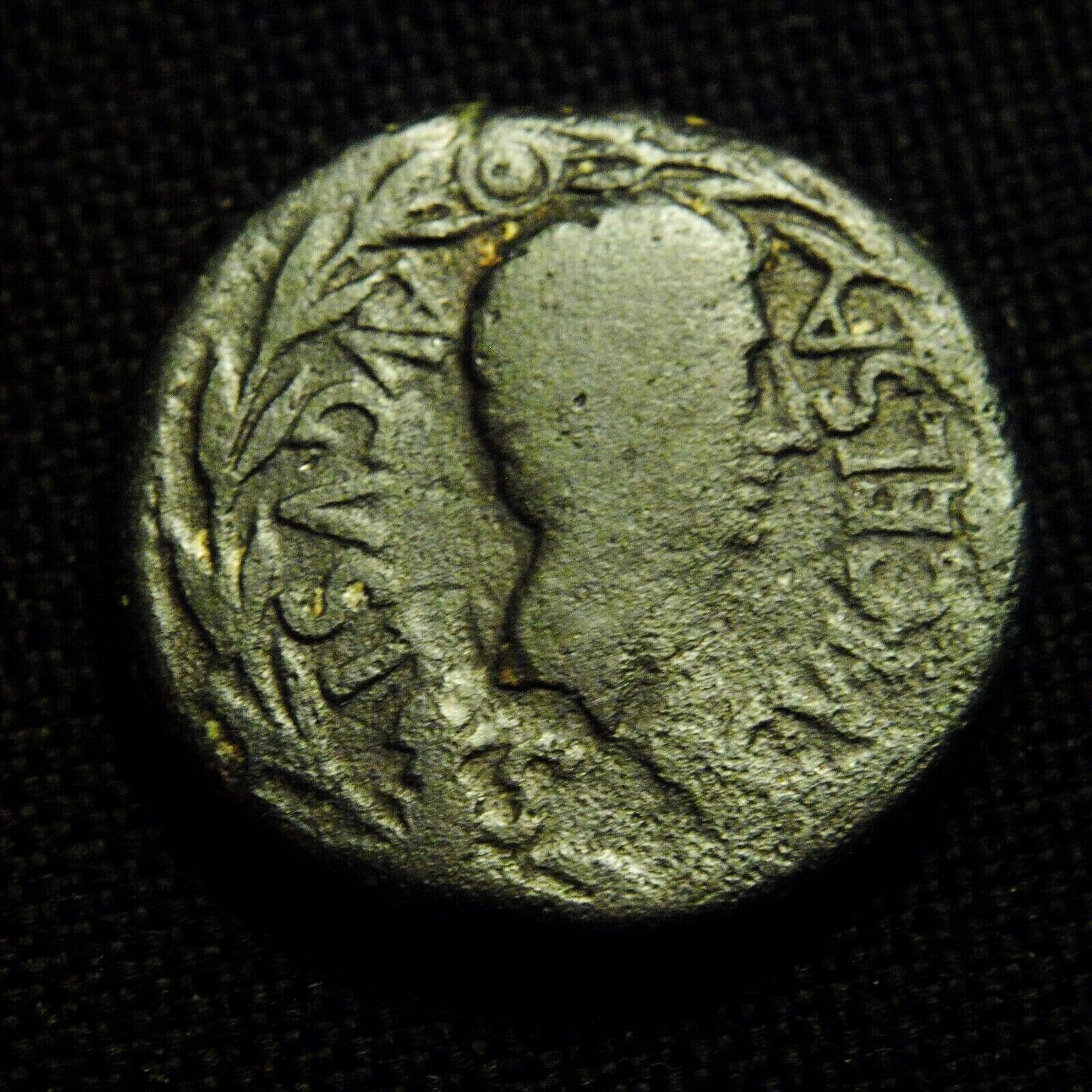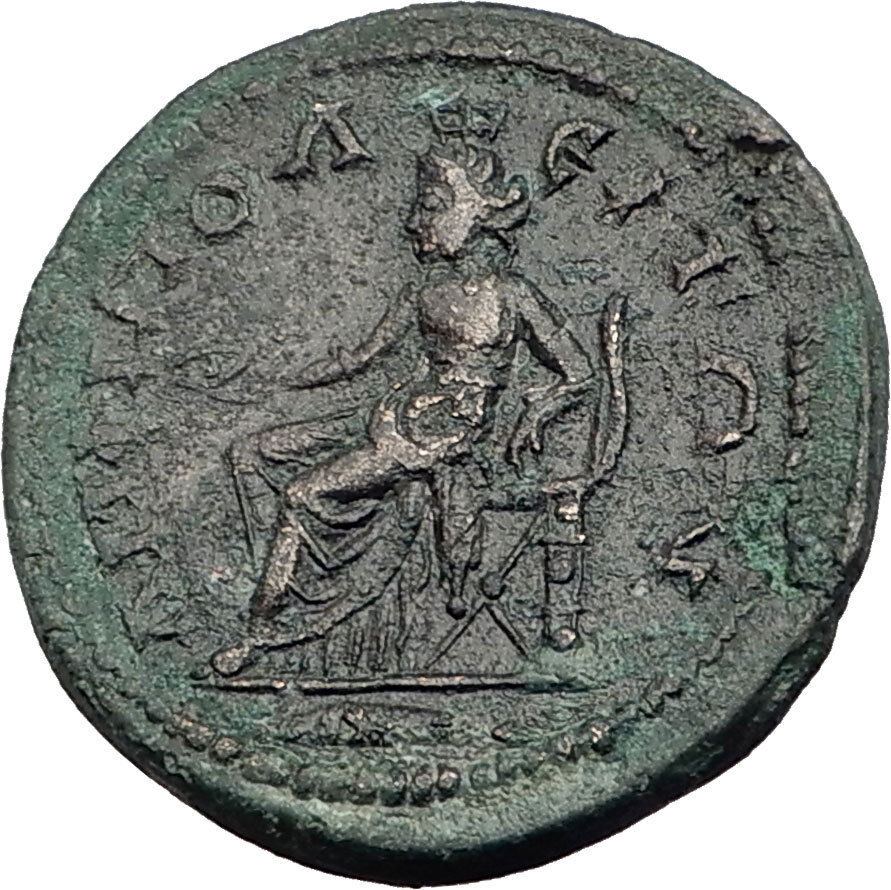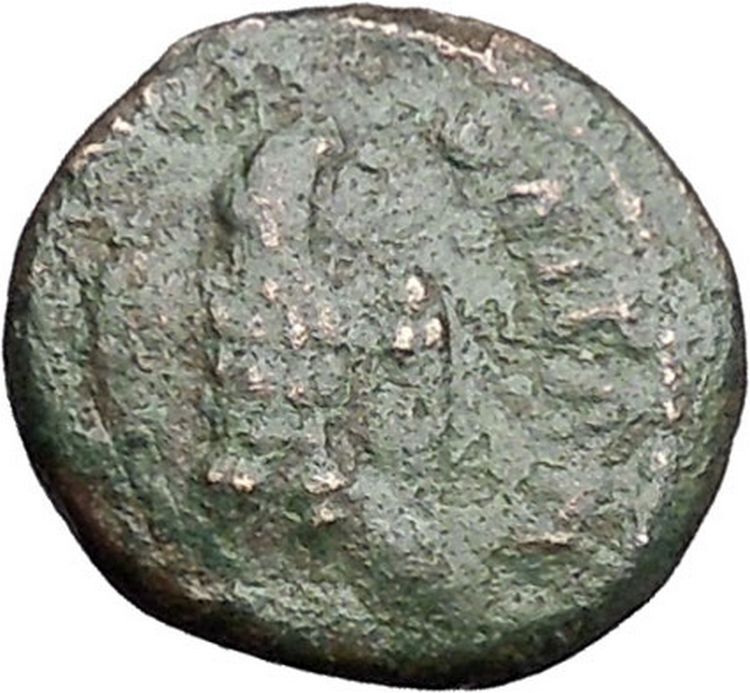-40%
NERO 54-68 AD Burn Rome Burn! BI tetradrachm Regnal Year 13 From Egypt NGC VF
$ 150.47
- Description
- Size Guide
Description
NERONero (/ˈnɪəroʊ/ NEER-oh; Nero Claudius Caesar Augustus Germanicus;[i] 15 December 37 – 9 June 68 AD) was the fifth Roman emperor, ruling from 54 to 68. His infamous reign is usually associated with tyranny, extravagance, and debauchery.[2][ii][iii] Nero, originally named Lucius Domitius Ahenobarbus, belonged to the Julio-Claudian dynasty, and was adopted as heir by the emperor Claudius, his great-uncle and stepfather. Nero succeeded Claudius while not yet aged 17, and his mother, Agrippina, tried to dominate his early life and decisions, but Nero cast her off and had her killed five years into his reign.[iii][3][4]
During the early years of his reign, Nero was content to be guided by his mother Agrippina, his tutor Seneca, and his Praetorian prefect Afranius Burrus. As time passed, he began to play a more active and independent role in government and foreign policy. During his reign, the redoubtable general Corbulo conducted a successful war and negotiated peace with the Parthian Empire. His general Suetonius Paulinus crushed a major revolt in Britain, led by the Iceni Queen Boudica. The Bosporan Kingdom was briefly annexed to the empire, and the First Jewish–Roman War began. Nero focused much of his attention on diplomacy and trade, as well as the cultural life of the empire, ordering theatres built and promoting athletic games. He made public appearances as an actor, poet, musician, and charioteer. In the eyes of traditionalists, this undermined the dignity and authority of his person, status, and office. His extravagant, empire-wide program of public and private works was funded by a rise in taxes that was much resented by the upper classes. In contrast, his populist style of rule remained well-admired among the lower classes of Rome and the provinces until his death and beyond. Various plots against Nero's life developed, and Nero had many of those involved put to death.
In AD 68 Vindex, governor of the Gaulish territory Gallia Lugdunensis, rebelled, with support from Galba, governor of Hispania Tarraconensis. Vindex's revolt failed in its immediate aim, though Nero fled Rome when its discontented civil and military authorities chose Galba as emperor. On 9 June in AD 68, he committed suicide, becoming the first Roman Emperor to do so, after learning that he had been tried in absentia and condemned to death as a public enemy.[5][6] His death ended the Julio-Claudian dynasty, sparking a brief period of civil wars known as the Year of the Four Emperors.
Most Roman sources, including Suetonius and Cassius Dio, offer overwhelmingly negative assessments of his personality and reign; likewise, Tacitus claims that the Roman people thought him compulsive and corrupt. Suetonius tells that many Romans believed that the Great Fire of Rome was instigated by Nero to clear the way for his planned palatial complex, the Domus Aurea.[7] According to Tacitus he was said to have seized Christians as scapegoats for the fire and burned them alive, seemingly motivated not by public justice but by personal cruelty.[8] Some modern historians question the reliability of the ancient sources on Nero's tyrannical acts, however.[9][10] There is evidence of his popularity among the Roman commoners, especially in the eastern provinces of the Empire, where a popular legend arose that Nero had not died and would return. At least three leaders of short-lived, failed rebellions presented themselves as "Nero reborn" to enlist popular support.
Ancient Coins Guaranteed Authentic
I offer 30-day no questions asked free returns!*‡‡
All Shipping Combined
Free Domestic Shipping
International Shipping Free For Purchases over ,000
*Does not include items damaged within first 30 days.
‡‡ Returns & cancellations Subject to a 3% restocking fee.
An unavoidable fee due to Paypal's recent user agreement changes.




